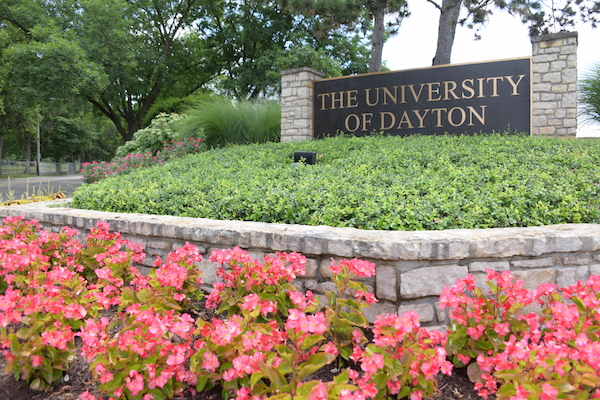President's Blog: From the Heart

A Voice at the Table
By Eric F. Spina
Universities are often criticized for being ivory towers disengaged from the world and inaccessible to students from middle- and low-income families.
That’s not the narrative we’re writing at the University of Dayton, where community engagement is prized and we’ve made notable progress in enrolling talented students — no matter their ZIP code or their family’s income level — and supporting their success from the first day of classes to graduation through initiatives like the Flyer Promise Scholars Program and the UD Sinclair Academy.
We want to be a strong, resolute voice at the table nationally and in our state to help advocate and shape public policy for increasing accessibility and affordability, serving underserved groups such as veterans, and reforming tax policies to help families pay for college.
That’s why I didn’t hesitate to accept invitations to serve as board chair of both the National Association of Independent Colleges and Universities (NAICU) for one year and the Association of Independent Colleges and Universities of Ohio (AICUO) for two years. The work of both NAICU and AICUO was highlighted during the first two years of the pandemic, as they were strong advocates for colleges and universities being treated fairly in the allocation of stimulus funds, but both organizations have long been influential voices for independent higher education.
NAICU has advocated for bipartisan legislation to help protect the education benefits afforded to veterans and continues to be a leading voice in the movement to double the federal Pell Grant to give more students from lower-income backgrounds the opportunity to earn college degrees and achieve the American dream of meaningful careers and upward mobility.
For AICUO, I’ve offered testimony for strengthening Ohio’s only need-based financial aid program, the Ohio College Opportunity Grant. As I told the Ohio House Finance Subcommittee on Education, the long-term viability of this program is critical to our efforts to enroll more talented low- and moderate-income students and graduate them well prepared for jobs that advance Ohio’s economy.
We’ve made increasing socio-economic diversity an imperative at UD, where we never want to be a university for only the wealthy. That’s not the Marianist way. The Marianists are dedicated to transforming the lives of students from all socio-economic walks of life through education and creating a more equitable future for all.
That’s also the mission of The American Talent Initiative (ATI), a national alliance of colleges and universities with high graduation rates who are working together to graduate more students from lower income backgrounds. I’m honored to serve on the steering committee of ATI with presidents from several national universities.
My involvement in leadership positions nationally and in Ohio draws attention to UD’s efforts to expand opportunity for talented students of moderate or little means. We want to be on the forefront of creating change on campus and in higher education.
Why? The answer is simple. When individuals who might not otherwise have access to a high-quality institution are able to attend college, it can change the arc of a family’s life.
That’s transformative.
